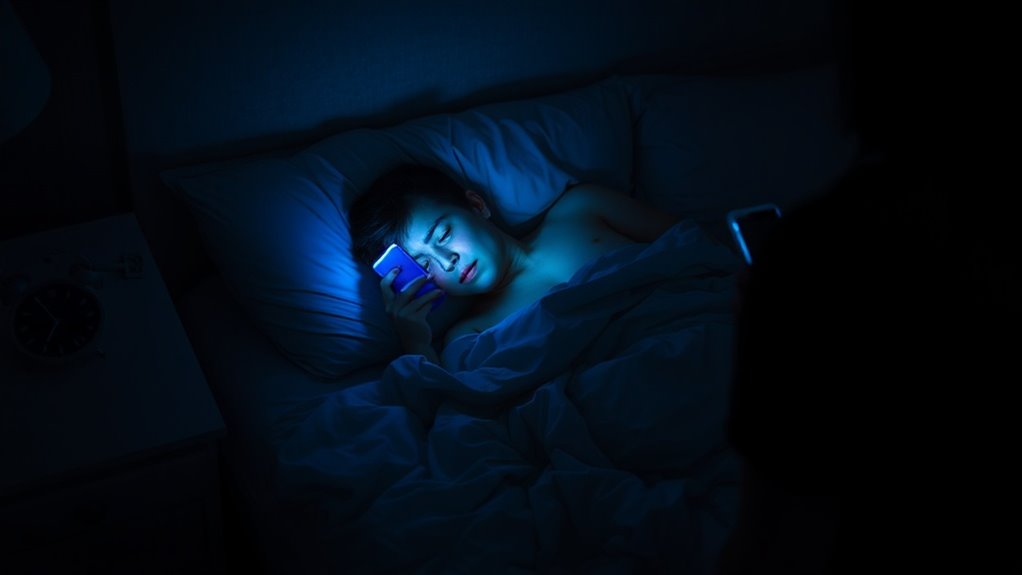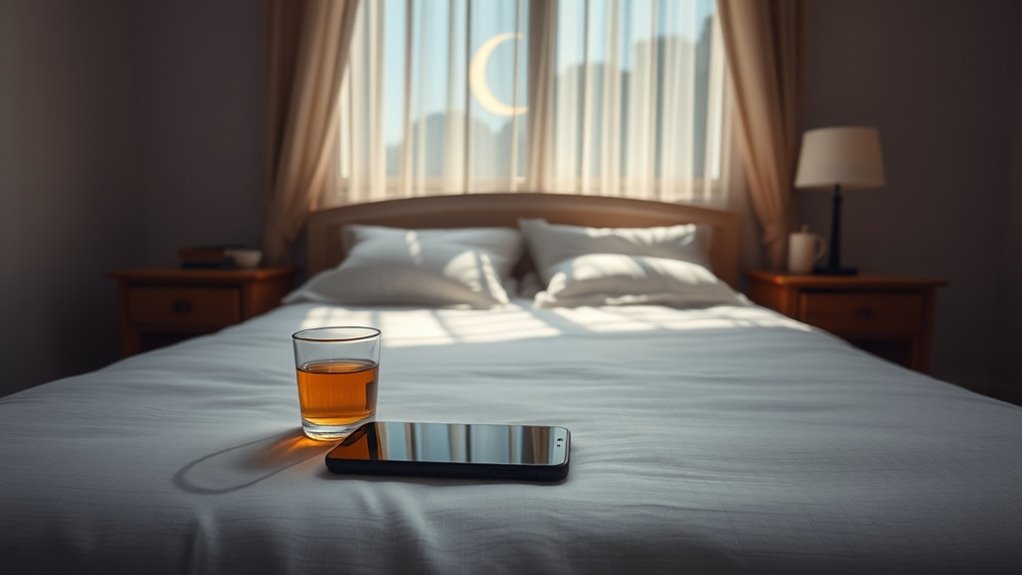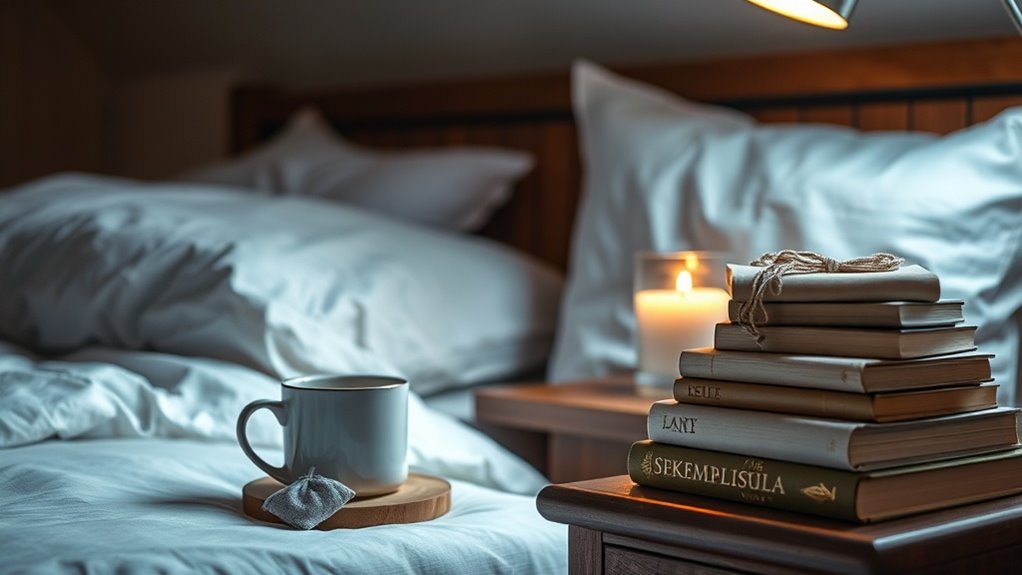I Replaced Scrolling With This and My Sleep Improved Instantly
If you’ve ever found yourself scrolling through your phone late at night, you know how it can disrupt sleep and increase anxiety. You might be surprised to learn that replacing this habit with calming rituals can lead to immediate improvements. Simple actions like dimming lights, engaging with a book, and practicing deep breathing can create a peaceful atmosphere. Want to explore how these changes can transform your nighttime routine and enhance your overall well-being?
Key Takeaways
- Replacing scrolling with light reading before bed reduces anxiety and signals your body to wind down for sleep.
- Establishing a calming bedtime ritual enhances sleep quality by reinforcing your natural sleep cycle.
- Engaging in mindfulness practices, like deep breathing, promotes relaxation and prepares your mind for restful sleep.
- Creating a screen-free environment minimizes blue light exposure, fostering a tranquil atmosphere conducive to sleep.
- Tracking your sleep patterns helps identify habits that improve sleep quality, motivating you to maintain healthy routines.
The Negative Effects of Nighttime Scrolling
As you scroll through your phone late at night, you mightn’t realize the toll it’s taking on your sleep. The blue light emitted from screens disrupts your circadian rhythm, making it harder to fall asleep. Studies show that this nighttime switch leads to decreased melatonin production, which is crucial for quality rest. Moreover, the constant stream of information can heighten anxiety and keep your mind racing. You’re more likely to feel tired and groggy the next day, impacting your focus and mood. Implementing a simple 15-minute evening routine can help counteract these effects and promote better sleep.
Discovering Calming Bedtime Rituals
How can you transform your nighttime routine into a peaceful prelude for sleep?
Establishing calming bedtime rituals can significantly enhance your rest.
Consider incorporating these three practices:
-
Dim the Lights: Lowering the light levels signals your body to wind down and prepares you for sleep.
-
Engage in Light Reading: Choose a soothing book—preferably in print—to help distract your mind and ease anxiety.
-
Take a Warm Bath: A warm bath raises your body temperature, and the subsequent cooling promotes sleepiness. Additionally, creating a consistent nightly ritual can reinforce your body’s natural sleep cycle.
Incorporating Mindfulness and Meditation
What if you could quiet your racing thoughts and ease into sleep with just a few minutes of mindfulness and meditation? Research shows that incorporating mindfulness can enhance your sleep quality. Try these simple techniques to unwind each night:
| Technique | Duration | Benefits |
|---|---|---|
| Deep Breathing | 5 minutes | Reduces anxiety |
| Body Scan | 10 minutes | Enhances relaxation |
| Guided Meditation | 15 minutes | Promotes emotional balance |
A soothing breathing exercise can help you transform your sleep and encourage deeper relaxation as you prepare for bedtime.
The Importance of a Screen-Free Environment
Creating a calming bedtime routine is incomplete without considering your environment.
A screen-free space promotes better sleep by reducing blue light exposure and calming your mind.
Here are three key aspects to focus on:
- Lighting: Use warm, dim lights to signal your body it’s time to wind down.
- Sound: Incorporate soothing sounds or silence to create a peaceful atmosphere, blocking out distractions.
- Comfort: Invest in comfortable bedding and keep your room cool to enhance relaxation.
Additionally, maintaining a screen-free environment helps signal to your brain that it is time to sleep, further supporting your body’s natural rhythms.
Tracking Sleep Improvements and Benefits
Have you ever wondered how tracking your sleep can enhance your overall well-being?
By keeping tabs on your sleep patterns, you gain valuable insights into your habits.
You can identify factors that disrupt your rest, like late caffeine intake or irregular bedtimes.
Sleep tracking helps you establish a consistent routine, leading to improved sleep quality and duration.
Research shows that better sleep boosts mood, cognitive function, and physical health.
Plus, noting your progress motivates you to maintain healthy habits. Additionally, understanding common reasons for sleep disturbances can further help you tailor your routine for optimal rest.





